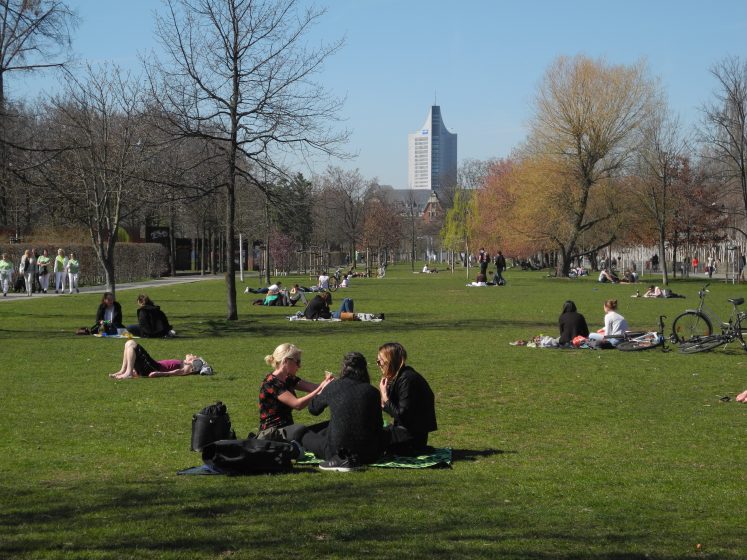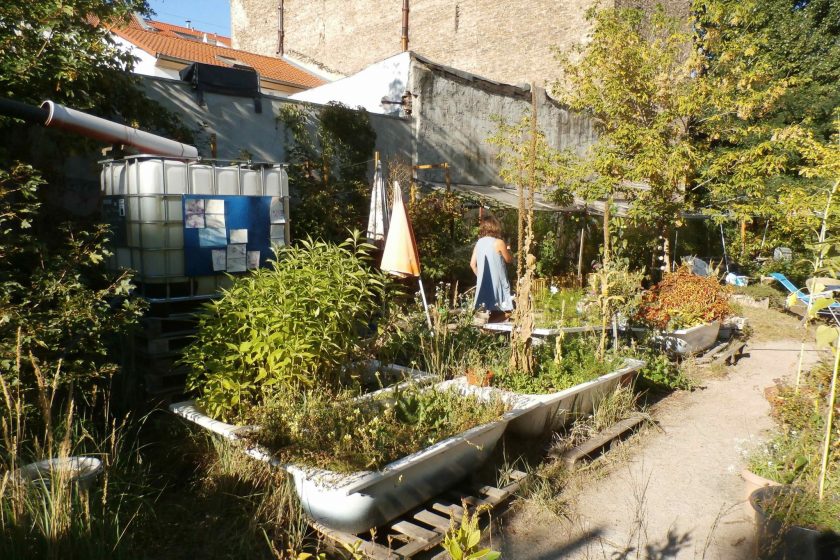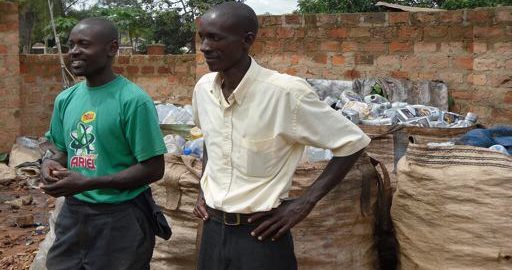In urban greening, ecological/environmental and social goals of urban sustainability should be “natural” allies but under current common neoliberal conditions, greening runs the risk to become an instrument of (re)production of inequalities and injustices.
The idea that equity is an important and indispensable part of sustainable development has been there from the early days. The intellectual basic for and actions taken towards sustainability are thought to be fundamentally fair and just—a world in which all have access and means to the resources needed for their wellbeing. However, as soon as we get down to the operationalization of the concept of sustainable development, these ideal visions largely disappear or become second rank to a focus on technology, green or smart solutions, and market-driven green solutions that serve for only a few. Hence, we are left with is the notion of the great importance of the concept of equity and fairness that has not much to do with the reality of sustainability interventions.
The reasons for this are well understood. Compelling as it is, the notion of equity is antithetical to a global socio-economic system rooted in market-based exploitation of natural and human resources. The notion of sustainable development in the form of global growth-based capitalism—namely knowledge transfer, technological optimism, consumption etc.—is (literally) melting under our feet with every passing day as we watch “global capital” stall and play for time on the most fundamental issue of our time: climate change. Sustainable development as a concept carries the inconsistencies between global(ized) capitalism, telecoupling, and liberal values and human rights that have been the mark of 20th and early 21st centuries’ international politics.

Social inequality as it relates to sustainability exists across scales from global to local. In this context, we can identify—at least—a “threefold unfairness” of inequities: (a) the day by day unfairness in access to environmental (recreational, clean air and water) and social (education, good housing, health care) resources; (b) the risk of being affected by the consequences of climate change and other environmental hazards; (c) inequitable access to decision making, including decisions that the first two points in the list, through systematic or inadvertent lack of participatory process.
Economic inequality reduces the chances of the disadvantaged to benefit from global economic upswings. Poor and minority communities suffer, in an intersectional manner, because disadvantages commonly co-occur in a way that compounds vulnerability. For example, low income communities are more likely to be located in proximity to natural and industrial hazards which compounds poverty by placing additional health and safety expenses as well as the physical and mental impacts of coping with hazardous events. Poor and minority communities rarely benefit from the advantaged of new “green cities and neighborhoods”, from smart technologies, or other sustainability strategies, and in fact are sometimes displaced from them through processes of gentrification. Sometimes it seems as if the sustainability debate and related strategies of “smarter”, “greener”, and “healthier” orientates too much towards middle and higher class communities and almost completely overlooks the many who are poor or working class.
Global trends in urbanization mean that the tensions around sustainability are most pronounced in and around cities and will become more problematic within the next decades. Cities around the globe are show rising polarization between rich and poor, more and less vulnerable, advantaged versus disadvantaged, included and excluded people living in close proximity. Making progress towards urban sustainability is an essential part of a global sustainability agenda and has been finally recognized international by goal 11 of the SDGs.

In a recent special issue in the journal Sustainable Cities and Society, we explored the notion that approaches to urban sustainability originate from a multitude of perspectives that influence (and often determine) the outcomes. We found that comprehensive conceptualizations of sustainability, relating social-environmental-technical aspects of sustainability, usually occur in in the context of assessment research rather than in theory or application of sustainability. Concepts of equity are tangent or not at all addressed unless the research is framed from that particular perspective.
In order to fulfill the ideological call in sustainable development to further human wellbeing of all, equity—in terms of fairness, participation, mutual recognition and realization of capabilities—should be an explicit, functional goal, placed at the center of sustainability interventions and particularly at the center of the sustainable urbanization agenda. The long-term provision of social and physical infrastructure, goods and services needed to ensure the wellbeing of all, should be the organizing principle for all levels of governance. Indeed, much guidance already exist in the literature. The equity-based approach to environmental sustainability has deep roots in the environmental justice discussion and requires a focus on fair distribution of environmental benefits and burdens, a meaningful integration of underrepresented and vulnerable groups in decision making and the recognition of different values, wants and needs with respect to benefitting from and engaging with nature and environment. Authors such as Walker and Agyeman demonstrate how equity, social, and environmental justice relate to sustainability. Evans et al. (2019, p. 58) argues that today “smart cities risk marginalizing citizens, prioritizing end-of-pipe-solutions, and driving further economic development that runs counter the stated environmental and social objectives”. In our recent special issue, concerning the use of technology should be guided by socially determined values, goals and policies, Michalec et al. offer that the wealth of data now collected in “smart city” designs, can be used to derive more effective and nuanced sustainability plans and policies. And second, Trudeau argues that programs successful in integrating social equity goals derive buy-in and support from stakeholders by offering clear conceptualization of the relationship between social equity and livability concerns.
Equity-based approach to urban greening—what does it look like?
To the extent that there is potential of urban nature and green spaces to contribute to cities and societies that are more equitable, it has to be carefully planned, crafted, and cared for. Recent experience with plethora of greening initiatives stemming out of urban sustainability plans show that the act of greening itself does not inherently entail equitable outcomes in access or distribution of benefits. Equity-centered greening has to be set up as a policy and planning priority, all the more since our existing cities are full of inequities despite the global debate on Sustainable Development Goals and many local greening programs and strategies. What is described today, for example, as “eco-gentrification” or “social-ecological conflict” relates to historical and current processes of distribution of neoliberal housing market mechanisms. To avoid displacement by greening we now need ideas such as such as those proposed in Just Green Enough, but, at the same time, avoiding upgrading and displacement. What seems to be a social-ecological conflict at the surface, is, at its heart, a conflict based on unequal distribution of power and resources. To deny this context and the fact that any greening of cities happens under conditions of real-world capitalism and real-existing inequalities would mean to play off the social and the ecological against each other.
In a recent paper based on discussion between urban scholars from different parts of the Europe and North America, we focused on trade-offs between social and ecological developments in cities that are initiated and/or come along with greening measures—the rise of housing prices, displacement of low(er) income groups, exclusiveness—which are crucial for the future debate on sustainable cities and a socially balanced and inclusive way of developing our cities for all existing groups of urban dwellers. We believe to achieve equity-based greening the following reflections are necessary:
Consider the social effects of green sustainability strategies and existing trade-offs
Under current conditions, it is indispensable to make interactions between greening and existing market-driven distribution social power relations as well as practices of exclusion more explicit and consider them before setting up greening strategies. As described by the eco-gentrification debate, greening as such is not the problem but its realization under market conditions might lead to undesirable or at least socially non-sustainable results (e.g. displacement of the vulnerable). We must acknowledge that greening programs can be a trigger for decreased social sustainability if context factors are not considered. Especially forms of capitalist, market-driven or technological optimism “sustainability-fixes” should be thoroughly scrutinized. Instead, social goals should become more important as criteria for assessment of “green” measures. Some approaches to mitigate this risk are in connecting green and social housing plans or considering “just green enough” approaches to avoid negative social consequences.
Welcome potential conflict resulting from heterogeneous ideas, wants, and needs
Hitherto participation and “co-production” experiences show that results of such processes do not automatically lead to more inclusion or justice; under these circumstances, they can also reinforce existing social power relations and patterns of exclusion. If social sustainability is to be realized, a recognition of different wants and needs, values and practices—for example, of using public green spaces and ideas of shaping such spaces—should be the basis of action. Conflicts resulting from “true” participation must be constantly negotiated and re-negotiated; conflicts and opposite opinions should be acknowledged as a part of a heterogeneous urban society and a fundamental and ongoing condition for social change.
Include various types and sources of expertise
For equity-based process and results we need to recognize the different types of expertise, including different types of knowledge, which are needed and available. Academic and stakeholder expertise should be coupled with civic society expertise, first and foremost hitherto hidden or neglected knowledge (for example, by marginal groups) must be included. We, as academic experts in this field, recognize our responsibility to develop and express a critical view towards the context-driven and context-sensitive role of greening strategies and policies.
Social sustainability includes questioning current power relations within governance and decision-making
Greening happens not in a power-free vacuum but in an urban space that is determined by political and ownership power hierarchies and their respective impacts. Power impacts may reinforce inequities, for example. of green space accessibility, housing in newly greened areas, participation in greening projects/processes. Research and knowledge-building for social sustainability thus has to develop a critical standpoint to real-world inequalities in cities and their economic and power relations context. Social sustainability will only be realizable when we deliberately embed our research into context and critically scrutinize if not question current power mechanisms and real-world practices of social exclusion.
Finally, achieving equity in future sustainability is deeply connected to global political processes and the actors involved. As we experience political push and pull between ideas of liberal and illiberal democracy, between cosmopolitan and republican understanding of society and place, and the questioning of the idea of democracy itself, the debate about equity in sustainable development hangs in the balance.
The concept of sustainable equity assumes that we view pluralism, cultural and lifestyle diversity, multiculturalism, collaboration, flexibility, care about the most vulnerable in society as necessary and desirable. And it also means questioning some basic logics of market-based, neoliberal capitalism determining the fate of our cities. Social sustainability will not be created by market forces, here we need a balance created by government policy and co-produced steering. Thus, seeking an integrative kind of sustainability is intricately connected to the resistance to any kind of authoritarian, illiberal, non-democratic and anti-cosmopolitan waves rising around the whole globe at the moment.
We need more “commons thinking” in our cities and urban societies with respect to a fair distribution of goods and burdens and a real chance for participation and recognition of all. “Socially attentive greening” could be an avenue to trigger and foster more social equity and inclusiveness where urban nature, urban ecosystems and the services they provide play a role in making our cities more sustainable. In order to achieve more equity and inclusiveness in our urban systems we must reinforce our belief in these values and start to adapt now.
Peleg Kremer, Annegret Haase, and Dagmar Haase
Princeton, Leipzig, and Berlin
about the writer
Annegret Haase
Dr. Annegret Haase is a senior researcher at Helmholtz Centre for Environmental Research – UFZ in Leipzig, Germany, at the Dept. of Urban and Environmental Sociology. Her research is focused on sustainable urban development, urban transformations and social-environmental processes in cities.
about the writer
Dagmar Haase
Dagmar Haase is a professor of urban ecology at Humboldt University in Berlin. She is a guest scientist at the Helmholtz Centre for Environmental Research (UFZ) in Leipzig. She specializes in urban systems analysis. Together with her team, she investigates ecosystem services, green infrastructure, and nature-based solutions in cities.






